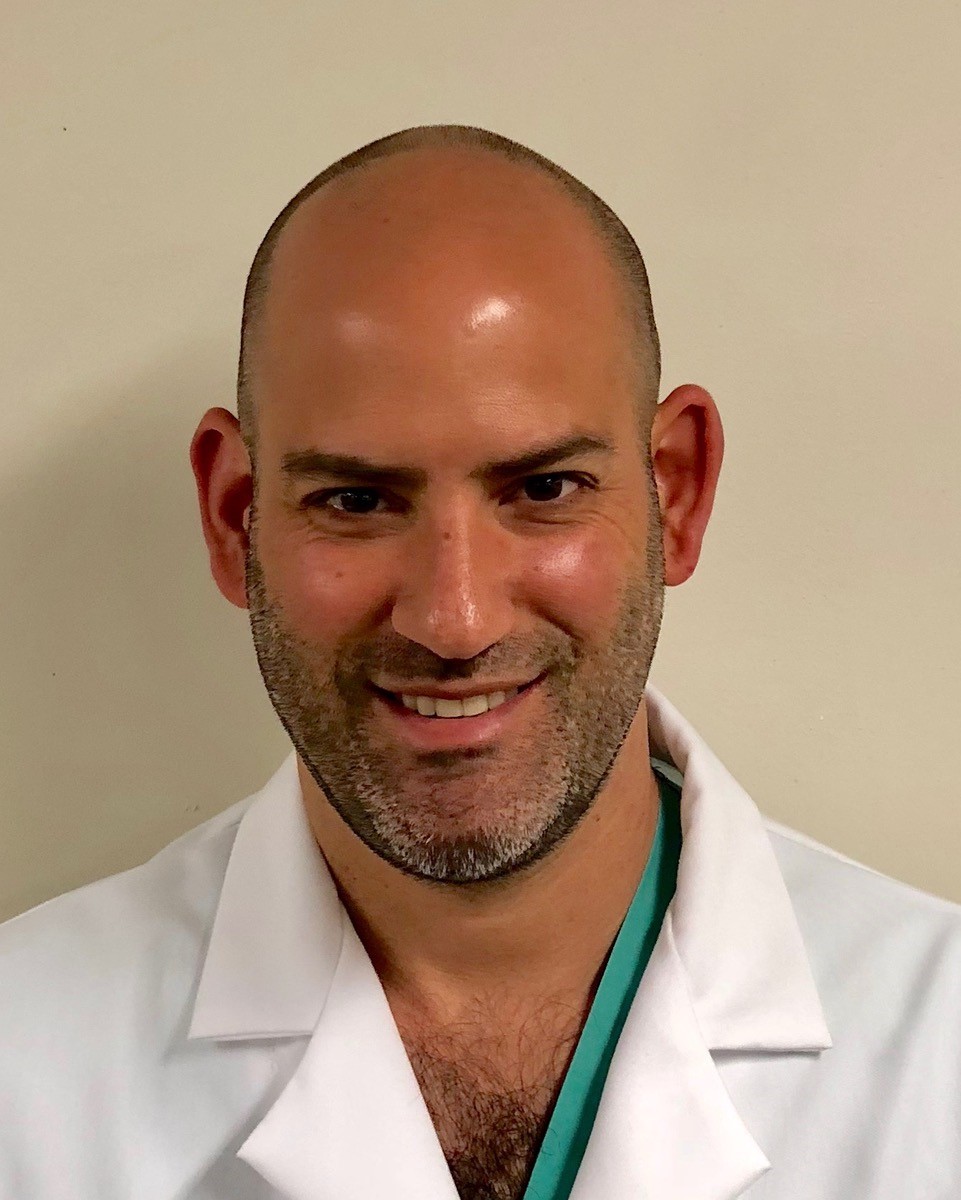ASCRS webinars are for member surgeons who are interested in learning more about topics related to colorectal diseases, treatment and surgery. The webinars are presented live by subject matter experts and are complimentary as part of your ASCRS membership. Enjoy interaction with the presenters in a live format or view the entire webinar after the event on your schedule. These brief, yet extremely informative, web-based education sessions are accessible after the event through CREST®.
Accreditation
 The American Society of Colon and Rectal Surgeons (ASCRS) is accredited by the Accreditation Council for Continuing Medical Education to provide continuing medical education for physicians. ASCRS takes responsibility for the content, quality and scientific integrity of this CME activity.
The American Society of Colon and Rectal Surgeons (ASCRS) is accredited by the Accreditation Council for Continuing Medical Education to provide continuing medical education for physicians. ASCRS takes responsibility for the content, quality and scientific integrity of this CME activity.
Upcoming Webinar:
Complex Anorectal Crohn's Disease
 August 15, 2019 7:00pm CDT
August 15, 2019 7:00pm CDT

Moderator: Daniel Popowich, MD
Speakers:
Anjali Kumar MD, MPH, FACS, FASCRS and Elizabeth Breen, MD
This webinar is designed to help you understand the medical and surgical management of simple and comlex perianal Chrohn's disease. This includes the medical and surgical management and when to divert.
Upon completion of this webinar, you should be able to:
- Understand optimal medical management of perianal Crohn's disease
- Review local surgical options in the management of perianal Crohn's disease
- Describe when to divert, temporary or permanantly
The following have no relevant financial relationships to disclose:
Daniel Popowich, MD
Anjali Kumar MD, MPH, FACS, FASCRS
Elizabeth Breen, MD
Archived Webinars
Rectal Prolapse

Moderator: Brooke Gurland, MD
Speakers: Mehraneh Jafari, MD and Rocco Ricciardi, MD, MPH
Original webinar date: May 16, 2019
Rectal prolapse is a relatively common debilitating condition with both functional and anatomic sequelae.
Rectal prolapse can occur in all age groups as a result of functional bowel and pelvic floor disorders.
Throughout the past century, more than 100 different surgical procedures have been described and there is no consensus regarding the best technique. Recurrence rates for complete rectal prolapse have been reported as high as 20-50 percent. The ideal surgical approach to treat these recurrences remains an unresolved problem.
The goal of this webinar is to discuss the evaluation, workup surgical management and outcomes of rectal prolapse in different subgroups of patients.
Upon completion of this webinar, you should be able to:
- Describe the testing needed to assess patients with rectal prolapse prior to surgery
- Review the surgical decision making for different subgroups of patients with rectal prolapse
- Review the surgical outcomes for patients undergoing different surgical procedures for rectal prolapse
The following have no relevant financial relationships to disclose:
Brooke Gurland, MD
Mehraneh Jafari, MD
Rocco Ricciardi, MD, MPH
This webinar is now available in CREST. Access CREST via the Online Learning Center.
Enhancing Patient-Physician Communications

Moderator:Jennifer S. Beaty, MD, FACS, FASCRS
Speakers: William C. Cirocco, MD and James Merlino, MD
Original webinar date: February 21, 2019
There is renewed emphasis on patient-physician interaction. The relationship between patient-physician communication quality and patient outcome is important, and physician-patient relationship affects patient satisfaction scores. Evidence-based literature exists on ways to improve the quality of patient-physician communication. This webinar is designed to help surgeons to strategically improve this essential skill.
Upon completion of this webinar, you should be able to:
- Understand the relationship between patient experience and patient outcomes
- Describe the role of patient-physician communication and patient satisfaction scores.
- Describe a communications curriculum and ways to implement aspects into your practice/institution
All identified conflicts of interest have been resolved:
James Merlino, MD, Press Ganey Associates: Salary, Employment
The following have no relevant financial relationships to disclose:
Jennifer S. Beaty, MD, FACS, FASCRS
William C. Cirocco, MD
Surgical Treatment of IBD in the Era of Biologics: Ileal Pouches and Pouchitis

Moderator: Walter A. Koltun, MD, FACS, FASCRS
Speakers: Samuel Eisenstein, MD and Matthew Mutch, MD
Original webinar date: November 8, 2018
There continues to be controversy regarding the surgical treatment of ulcerative colitis, even more so in this era of biologic therapy. Patients failing medical management will still be treated with colectomy, but now will commonly go to the OR with some biologic agent having been given. Data looking at complications and outcomes associated with surgery and biologic use is difficult to interpret due to the preselected nature of this group of patients, their variable degree of wellbeing at the time of surgery, the variable phenotype of the illness itself and a multitude of differing biologics now being used. However, with time and increasing experience an evolving consensus is emerging, especially insofar as patients undergoing the IPAA procedure. Surgeons need to be aware of factors that can improve or worsen surgical complications associated with the IPAA procedure in patients treated with biologics.
Once the patient undergoes definitive IPAA reconstruction, too often the enigmatic complication of pouchitis will occur. Depending on study and duration of follow up, up to 50% of patients will suffer the signs and symptoms of pouchitis within two years of IPAA creation. Pouchitis suggests itself to be (like IBD) the consequence of the combined effects of genetic predisposition and noxious enteric agents but is very much more responsive to medications, especially antibiotics than the original ulcerative colitis. However, there is, like IBD, a spectrum of pouchitis severity that demands a measured approach with differing therapies based on the specifics of presentation. Though antibiotics may work on mild pouchitis, more severe forms require more aggressive therapy including possibly biologic therapy. The surgeon should be aware of the varying forms and causes of pouchitis, to then be able to institute the appropriate therapy.
Upon completion of this webinar, participants should be able to:
- explain the risks and complications associated with IPAA surgery in patients with biologic therapy.
- identify methods/techniques to modify/improve risk of IPAA surgery in patients on biologic surgery.
- describe the workup and subclassification of patients with pouchitis.
- distinguish the various therapies for patients with pouchitis based on subclassification.
This webinar is available in CREST. Access CREST via the Online Learning Center.
The following have no relevant financial relationships to disclose:
Samuel Eisenstein, MD
Walter A. Koltun, MD, FACS, FASCRS
Matthew Mutch, MD
Management of Metastatic Colon Cancer
 Moderator: Stephen Sentovich, MD
Moderator: Stephen Sentovich, MD
Speakers: Paula Denoya, MD, FACS, FASCRS; Jonathan Efron, MD, FACS, FASCRS
Original Webinar Date: September 20, 2018
This webinar will be available on CREST soon.
This is a webinar on the management of metastatic colon cancer. During the webinar, the following topics will be addressed: how to identify patients with metastatic colon cancer, how to work-up patients with metastatic colon cancer, what nonsurgical and surgical treatments are available and when they are indicated, and what are the expected results of treatment.
Upon completion of this webinar, participants should be able to:
- Explain the work-up for patients with metastatic colon cancer.
- Recognize the treatment options for patients with metastatic colon cancer.
- Describe the follow-up of patients with metastatic colon cancer.
This webinar is available in CREST. Access CREST via the Online Learning Center.
All identified conflicts of interest have been resolved.
Jonathan Efron, MD, FACS, FASCRS: Ethicon Endosurgery: Educational Consultant, Honorarium, Teaching
The following have no relevant financial relationships to disclose:
Paula Denoya, MD, FACS, FASCRS
Stephen Sentovich, MD
Management of Anal Dysplasia: Is There a Correct Approach?
 Moderator: Bard C. Cosman, MD, MPH
Moderator: Bard C. Cosman, MD, MPH
Speakers: Stephen E. Goldstone, MD, FACS and Emily Steinhagen, MD
Original webinar date: June 21, 2018
This webinar will be available on CREST soon.
This webinar will review current strategies for the evaluation and management of the patient with high-grade anal dysplasia (HSIL) in different clinical settings, such as when it is discovered incidentally by the surgeon and when the patient with known HSIL is referred to the surgeon. The role of surgical treatment in the management of “Bowen’s disease” has evolved over the past 25 years, with significant changes in our understanding of this condition, and consequent changes and controversies about the timing and choice of interventions.
When HSIL diagnosis became common, surgeons questioned and largely rejected the practice of wide local excision. Some adapted supravital staining and colposcopy from gynecologic usage, in the now widespread practice of high-resolution anoscopy. Others questioned the cervical-dysplasia model and advocated expectant management of HSIL. The natural history of HSIL and its conversion or progression to anal cancer stand at the heart of the controversy; differing views on these matters will be reviewed and debated during this webinar. The minimum standard of care which applies to all surgeons, regardless of their position in the controversy, will be discussed.
Upon completion of this webinar, participants should be able to:
- Identify groups of patients at high risk for high-grade dysplasia (HSIL).
- Identify other lesions associated with HSIL.
- Identify arguments for ablation of HSIL.
- Identify arguments for expectant management of HSIL.
- Identify the standard of care demands of a surgeon seeing a patient with HSIL identified on Pap smear or biopsy.
This webinar is available in CREST. Access CREST via the Online Learning Center.
All identified conflicts of interest have been resolved.
Stephen E. Goldstone, MD, FACS: Merck and Co.: Honorarium, Consulting Fee, Speaking, Advisory Committee; Medtronic: Honorarium, Consulting Fee, Research Support, Consulting, Speaking, Teaching, Research Protocol; Antiva: Research Support; Inovio: Research Support
The following have no relevant financial relationships to disclose:
Bard C. Cosman, MD, MPH
Emily Steinhagen, MD
Surgical Site Infection
 Moderated by: Christopher Mantyh, MD
Moderated by: Christopher Mantyh, MD
Speakers: I. Emre Gorgun, MD, and Najjia Mahmoud, MD
Original webinar date: Thursday, February 15, 2018
This webinar will be accessible in CREST soon.
This webinar examined the significant problem of Surgical Site Infection (SSI) in colorectal surgery and discussed how to measure the rate, as well as efforts to methods to reduce the SSI rate. The use of bundles, the importance of a multidisciplinary team, and financial benefits (and potential penalties) were also discussed.
Upon completion of this program, participants should be able to:
- Recognize the magnitude of surgical site infection in colorectal surgery.
- Identify how to measure and track SSIs.
- Fix SSI problems in colorectal surgery.
- Identify the biggest barriers in fixing SSIs in colorectal surgery.
This webinar is available in CREST. Access CREST via the Online Learning Center.
All identified conflicts of interest have been resolved.
Dr. Christopher Mantyh: Becton Dickinson: Honorarium, Consulting, Speaking, Advisory Committee
Dr. I. Emre Gorgun: Boston Scientific: Consulting Fee, Consulting
The following have no relevant financial relationships to disclose:
Dr. Najjia Mahmoud
